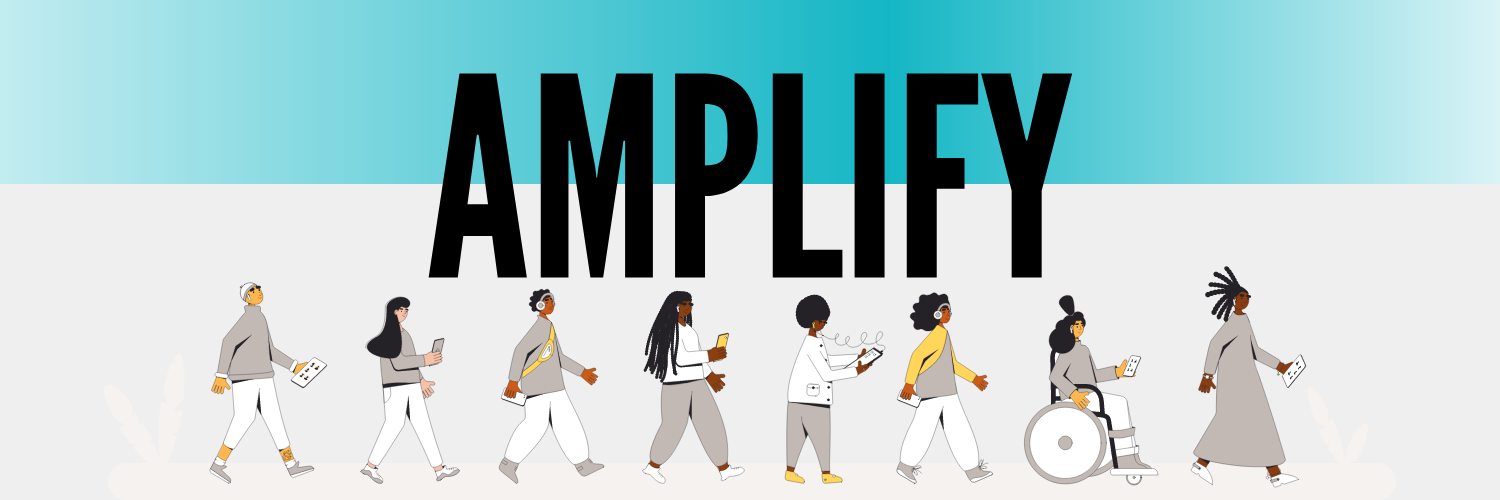ACT | The App Association recognizes the gap in representation in the tech community, and we want to change that. Our Amplify series lifts the voices of those in the tech community who are working to close those gaps in representation. We’re highlighting the problem solvers, elevating those who are driving change in their field and amplifying the efforts and voices of all people.
 Adriana Holst, ACT | The App Association’s membership intern, joined us for the summer after joining us (along with members of her family) at AppCon since 2016! Adriana has an impressive background (more on that below) in addition to her app, BenchMark, dedicated to serving the needs of the unhomed. But don’t just take it from us, we sat down with Adriana to learn more about the path that brought her to the App Association this summer and what excites her about tech policy and the app economy!
Adriana Holst, ACT | The App Association’s membership intern, joined us for the summer after joining us (along with members of her family) at AppCon since 2016! Adriana has an impressive background (more on that below) in addition to her app, BenchMark, dedicated to serving the needs of the unhomed. But don’t just take it from us, we sat down with Adriana to learn more about the path that brought her to the App Association this summer and what excites her about tech policy and the app economy!
Who is Adriana Holst? (Tell us a little about you)
I am a rising senior at Ohio University (OU) studying musical theater and computer science! As a Cutler Scholar at OU, I have spent a lot of time studying humanitarian efforts to aid some of the more vulnerable in the region. Some of these efforts have been well-meaning, others less so, each with varying levels of success, but in my studies, there was often a pattern: When Appalachians were not the center of the discussion, the efforts were largely ineffective. This led to my newest project, BenchMark, which seeks to help our most vulnerable by giving them a platform to help and advocate for each other.
Tell us more about your background. You mentioned you’re a senior at Ohio University and have a dynamic educational experience there by studying both computer science and musical theater. What has that been like?
Dynamic is certainly a word for it! As a woman in both computer science and musical theatre, I received skepticism from both sides of the aisle – whether I was not “really committed” as an actor because I had a “backup plan,” or whether I was somehow academically inferior due to a non-STEM major, I have heard my fair share of doubts. In truth, neither of my paths of study are backup plans, and I owe so much of who I am to the education I’ve been able to experience.
A lifetime in the theater gives you many gifts, some of which include a killer work ethic, the ability to work on a team, and great public speaking skills. Of course, there is a stereotype of the “antisocial programmer” being a true genius, but all these skills I’ve learned in theater have helped me tremendously in my development as a programmer. The two disciplines also share some fundamental truths, including the importance of centering your audience and evolving alongside their development. Programming with that in mind—as all programmers should—has made me a better and more flexible theater artist.
You told us a little about your app BenchMark and it sounds like you’re doing some pretty amazing things. Tell us about that!
Thank you! BenchMark is a crowdsourced navigation app—similar to Waze—that allows users to tag resources that are relevant to them. These resources can include access to free food, shelter, public bathrooms, Wi-Fi, access to hygiene products, and more. The crowdsourced nature also allows users to include qualifications; I understand not all resources help users equally, so users can note whether or not an area is LGBTQIA+ friendly, sober, safe for kids and women, or overpoliced. While I do believe this can help the homeless and food insecure everywhere, BenchMark is a direct response to the increased isolation that Appalachian homeless people face due to the aforementioned ineffective aid from outsiders as well as the geographic nature of the region. The mountains and hills are so beautiful, but they can also be isolating, especially for homeless people with disabilities.
There is a saying in Appalachia that it’s “in but not of America.” I’m hoping that with technology like BenchMark, the poverty that Appalachian communities are often faced with will no longer be exacerbated by well-meaning but uninformed outsiders. By giving Appalachians a platform, I hope our most vulnerable and isolated can find community with other people in the same boat.
So, what got you interested in tech generally, but also tech policy here at the App Association?
Funnily enough, the App Association got me interested in both! My dad has been a member [of the App Association] for as long as I can remember, and around the time I started high school, I would tag along for AppCons. The first year I went, there was legislation on the Hill regarding K-12 funding for computer science, and hearing everyone speak about the importance of it convinced me to take AP computer science the very next year! I fell in love with programming quickly after that. I was a big music theory nerd all throughout my childhood, and I found the creative problem-solving element of computer science to be similar.
As time went on, I understood—and contrasted—the difference in pace between tech development and tech policy. Technology is constantly evolving and doing so as quickly as people can manage. I don’t think it’s controversial to say that that pace is not met by Capitol Hill – and a lot of times that’s necessary! However, the more I understood the widening gap between tech development and the development of tech policy, the more I understood how important it is to advocate for our community. I also found that—if I can say so—my theater background well equips me for it! I came into computer science from a completely different world, and I think that gives me the unique ability to talk about these issues in clearer terms with people who otherwise may find the content intimidating.
After a summer at the App Association, what is the issue we work on that you get most excited about?
I want to say diversity, equity, and inclusion (DE&I) in our industry, but I feel like this is a cop out! I only say that because it finds its way into just about every issue in tech policy. I am passionate about finding the communities and people that tech has neglected and understanding why that is.
Of course, these issues range from broadband, a lack of which leaves Appalachian communities in the dark; computer science education, which often tends to favor wealthier school systems and white, male students; and tech privacy, as data discrimination and exploitation does not affect all users equally. Perhaps it’s less of a specific issue than it is an approach to understanding all issues, but my priority in tech policy is to make sure that underserved communities aren’t left behind.
And what about tech and the future of tech? What excites you most there?
I am excited to see tech continue to provide tools to bridge the gaps we have between each other. Being a membership intern at the App Association, I have been fortunate enough to research so much incredible software. Whether the tools were geared to better understanding, and protecting, one another through language barriers or minimizing the harmful symptoms of mental illnesses, I think technology will continue to erase limitations in our society.
There are, of course, always concerns about worker self-exploitation; that people may have an idea so innovative that they create something that renders their own labor inefficient and unneeded. I believe this will only be the case if we don’t continue to find ways to advocate for each other through tech. I see a future where people have power over the labor they perform – and the presence of intelligent machines and easier organization between workers mean we can have a healthy and innovative society that does not need to force people to perform labor they don’t feel comfortable with by holding the threat of poverty over their heads.
I’ll end with this question: if you had a piece of advice for women or young people generally—especially in this industry—what is it?
For young people: do not get consumed with an end goal. I would bet that the coolest jobs and most innovative paths of study that will exist in 10 years do not exist now. It does not matter what perceptions you have about the job you’ll hold in the future. What matters is learning what makes you tick. Find what you love, understand what you’re good at, and understand that if you don’t love it, someone else does and will spend countless more hours getting better at it than you. Don’t force yourself into a box because in a decade new boxes will exist.
For women: never let anyone tell you what you’re capable of. This seems a lot easier said than done, as a lot of times these limitations aren’t directly imposed but rather implied through systemic barriers, but it’s my advice, nonetheless. I am the only student at Ohio University to ever study both musical theater and computer science. A lot of people and a lot of existing protocol made it clear how many believed this would either not be possible or negatively impact one or both disciplines. In truth, I’ve found learning them in isolation is the only thing that has ever watered them down for me. You know yourself better than anyone else. Mentors are wonderful and extremely necessary—especially in tech where you have to be comfortable asking a lot of questions and learning / failing quickly—but only you know enough about yourself to advocate for what you can do and what you need to be able to do it.
